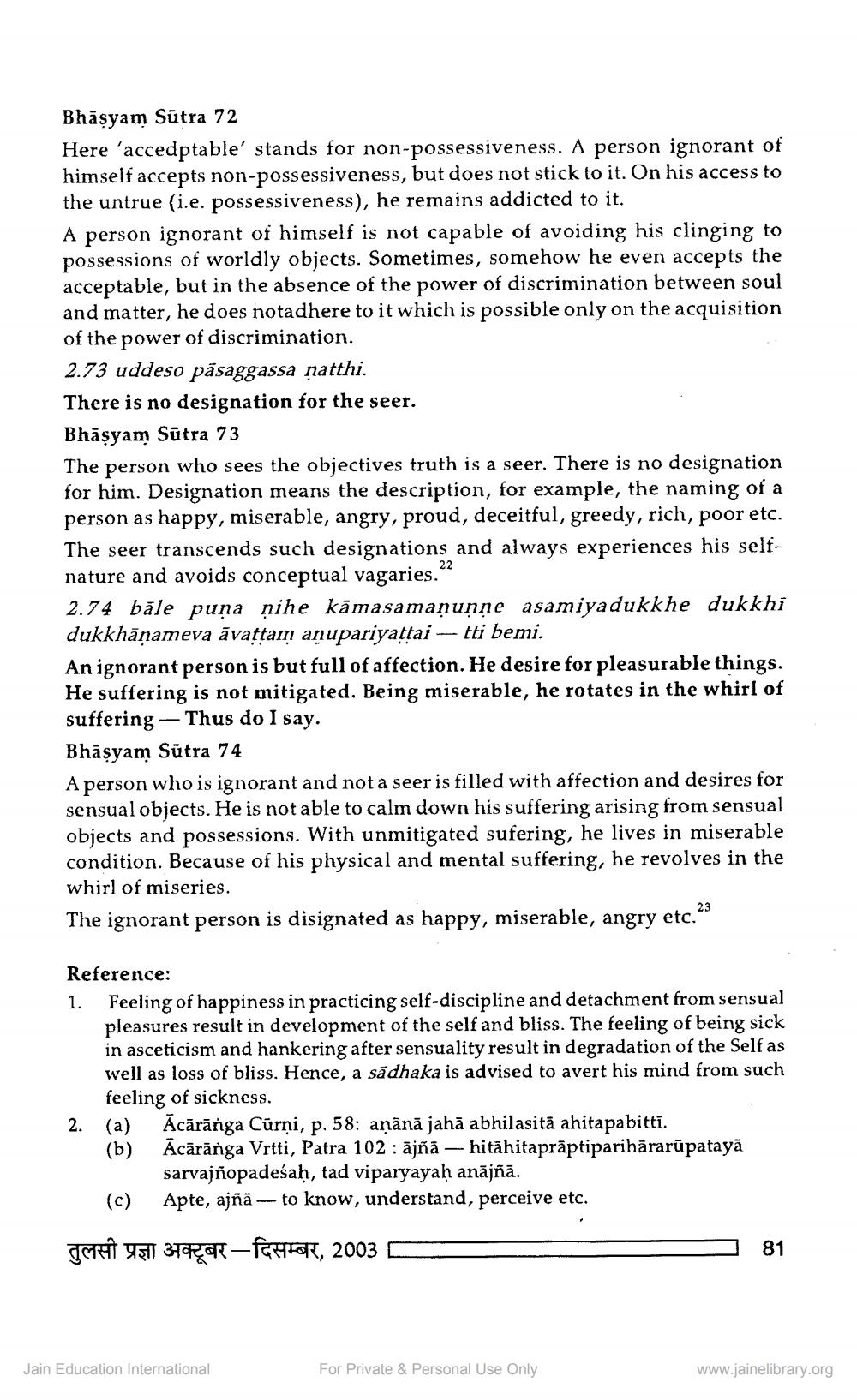________________
Bhāsyam Sūtra 72
Here 'accedptable' stands for non-possessiveness. A person ignorant of himself accepts non-possessiveness, but does not stick to it. On his access to the untrue (i.e. possessiveness), he remains addicted to it.
A person ignorant of himself is not capable of avoiding his clinging to possessions of worldly objects. Sometimes, somehow he even accepts the acceptable, but in the absence of the power of discrimination between soul and matter, he does notadhere to it which is possible only on the acquisition of the power of discrimination.
2.73 uddeso pasaggassa ṇatthi.
There is no designation for the seer.
Bhāsyam Sutra 73
The person who sees the objectives truth is a seer. There is no designation for him. Designation means the description, for example, the naming of a person as happy, miserable, angry, proud, deceitful, greedy, rich, poor etc. The seer transcends such designations and always experiences his selfnature and avoids conceptual vagaries.
2.74 bale puna nihe kāmasamaṇunne asamiyadukkhe dukkhi dukkhāṇameva avaṭṭam anupariyaṭṭai tti bemi.
An ignorant person is but full of affection. He desire for pleasurable things. He suffering is not mitigated. Being miserable, he rotates in the whirl of suffering -Thus do I say.
Bhāsyam Sūtra 74
A person who is ignorant and not a seer is filled with affection and desires for sensual objects. He is not able to calm down his suffering arising from sensual objects and possessions. With unmitigated sufering, he lives in miserable condition. Because of his physical and mental suffering, he revolves in the whirl of miseries.
22
23
The ignorant person is disignated as happy, miserable, angry etc.
1.
Reference:
Feeling of happiness in practicing self-discipline and detachment from sensual pleasures result in development of the self and bliss. The feeling of being sick in asceticism and hankering after sensuality result in degradation of the Self as well as loss of bliss. Hence, a sadhaka is advised to avert his mind from such feeling of sickness.
-
2.
(a)
(b)
(c)
तुलसी प्रज्ञा अक्टूबर-दिसम्बर, 2003
Acārānga Cürni, p. 58: aṇānā jahā abhilasitā ahitapabitti.
Acārānga Vrtti, Patra 102: ājñā - hitāhitaprāptiparihārarūpatayā sarvajñopadeśaḥ, tad viparyayaḥ anājñā.
Apte, ajñā -to know, understand, perceive etc.
Jain Education International
For Private & Personal Use Only
81
www.jainelibrary.org




